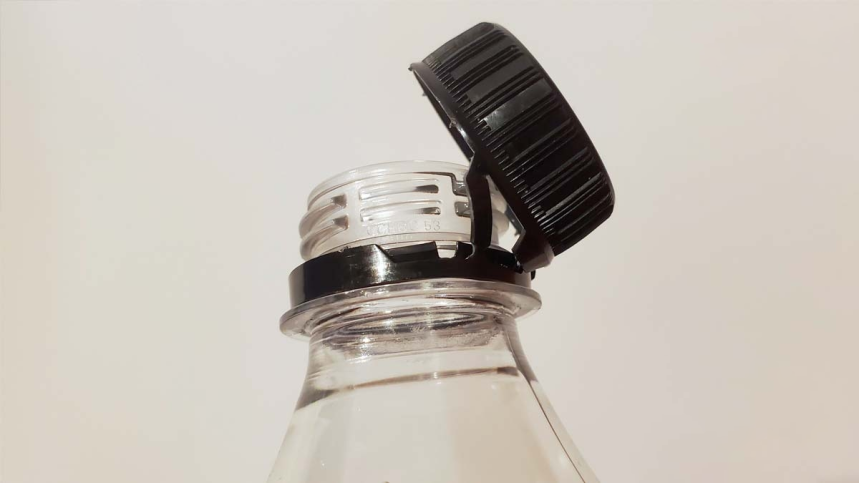
- posted
- article
Technologies in beverage packaging: global trends and practical solutions for Ukraine
Beverage packaging is one of the most dynamic areas of the food industry. High levels of competition, EU environmental legislation requirements (in particular, PPWR), changing consumer preferences, and rising raw material prices are forcing beverage manufacturers to rethink their packaging approaches.
As a candidate country for EU membership, Ukraine must already be preparing for these changes. In this article, we have compiled the main innovative trends in beverage packaging and shown how Ukrainian manufacturers can implement them with the support of technology partners, in particular the company SPELS'.
Trend 1: Lightweighting — reducing bottle weight
Global brands are actively reducing the weight of PET bottles in order to:
- reduce the cost of raw materials,
- optimize logistics,
- reduce carbon footprint.
Coca-Cola HBC has already reduced the weight of a 500 ml bottle to 19,9 g (30% less than 10 years ago), and 2-litre engines — to 42,7 g. This will save 5,000 tonnes of plastic by 2025..
For the Ukrainian market , this is a real tool for reducing costs, especially given the current prices for PET and logistics problems.
Trend 2: AI design and digital packaging management
Artificial intelligence (AI) — a new driver of efficiency in packaging:
- predicts line wear and production stoppages;
- optimises packaging design for logistics and durability;
- reduces the defect rate through machine vision.
According to a study by ResearchGate, companies that have implemented AI in packaging have reduced costs by 8–12%.
Trend 3: Alternative materials — paper bottles, composites
Companies such as Paboco, Carlsberg and PepsiCo are investing in the development of paper bottles with thin polymer barriers (<15%). Such packaging:
- reduces CO₂ emissions to –60–90 %;
- 80–90% lighter than glass;
- appealing to eco-conscious consumers.
In 2024, more than 38% of new packaging solutions in the EU contained at least one element of secondary or bio-based raw materials (Packaging Europe).
Reality for Ukraine: this is promising for niche brands (water, juices, craft beer) that want to stand out on the shelf and declare their environmental responsibility.
Trend 4: Active packaging — more than just packaging
Active packaging technologies include:
- temperature and freshness indicators;
- RFID tags and QR codes;
- antibacterial coatings.
In the beverage segment, active packaging allows for better control of logistics (especially in the cold chain) and ensures increased product safety. In addition, it helps to interact with consumers in a meaningful way.
Trend 5: Deposit system and tethered caps — EU requirements
The European Union has mandated the use of tethered caps — caps that remain attached to the bottle. By 2030, manufacturers are required to recycle at least 65% of packaging. Starting from 2024, all plastic bottles must be equipped with caps that cannot be separated from the container. This increases the efficiency of waste collection and simplifies recycling.
A deposit system is a system whereby consumers pay an additional deposit when purchasing packaging (bottles or cans). When they return the packaging to a collection point, they receive their deposit back. This approach encourages reuse and collection of packaging. In Europe, it has enabled a packaging return rate of over 90%.
In Slovakia, where a deposit system was introduced, the bottle collection rate exceeded 90 % in the first year.
What does this mean for Ukraine?:
Companies should already be preparing equipment for production with new types of caps and anticipating the possibility of automated sorting logistics.
How SPELS can help
SPELS' — a Ukrainian company with more than 10 years of experience in supplying spare parts and modernising equipment for bottling, packaging, filling lines, as well as heat exchange equipment.
Solutions provided by SPELS:
- Spare parts for packaging and filling equipment: to extend the service life of machines and reduce the risk of breakdowns and production downtime.
- Modernization of existing equipment: including the installation of new components and adaptation to changes in packaging formats (for example, for new lightweight bottles or tethered caps).
- Technical support, engineering, and consulting: for companies aiming to upgrade or stabilize the performance of packaging equipment without fully replacing production lines.
Conclusion
The beverage packaging industry in 2025–2030 is evolving under the influence of global standards and new technologies. Ukrainian manufacturers should focus on:
- lightweighting of packaging
- transition to alternative materials
- adaptation of equipment for tethered caps
- readiness for the possible implementation of a deposit return system
At the same time, technical solutions for gradual upgrades — such as modernization of specific units, selection of spare parts, and equipment adaptation — can be implemented in cooperation with partners like SPELS, who have experience working with packaging machines and filling lines from leading global brands.
SPELS – your partner in modernization
We help Ukrainian manufacturers:
✅ Upgrade equipment without completely replacing lines.
✅ Select spare parts to reduce downtime.
✅ Adapt to European standards.
📞 Contact us to calculate savings and find optimal solutions for your business!